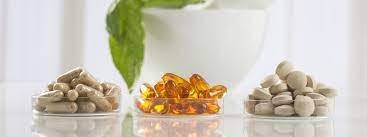
Breaking News
 The Prostate Cancer Test Dilemma
The Prostate Cancer Test Dilemma
 The Separation of Righteousness and Politics
The Separation of Righteousness and Politics
 Russian strike knocks out power in Kyiv FRANCE 24 English
Russian strike knocks out power in Kyiv FRANCE 24 English
 CLAIM: Bitcoin is going to ZERO folks – HOLY SCHLIT! Benny Johnson and Mike Benz on it
CLAIM: Bitcoin is going to ZERO folks – HOLY SCHLIT! Benny Johnson and Mike Benz on it
Top Tech News
 How underwater 3D printing could soon transform maritime construction
How underwater 3D printing could soon transform maritime construction
 Smart soldering iron packs a camera to show you what you're doing
Smart soldering iron packs a camera to show you what you're doing
 Look, no hands: Flying umbrella follows user through the rain
Look, no hands: Flying umbrella follows user through the rain
 Critical Linux Warning: 800,000 Devices Are EXPOSED
Critical Linux Warning: 800,000 Devices Are EXPOSED
 'Brave New World': IVF Company's Eugenics Tool Lets Couples Pick 'Best' Baby, Di
'Brave New World': IVF Company's Eugenics Tool Lets Couples Pick 'Best' Baby, Di
 The smartphone just fired a warning shot at the camera industry.
The smartphone just fired a warning shot at the camera industry.
 A revolutionary breakthrough in dental science is changing how we fight tooth decay
A revolutionary breakthrough in dental science is changing how we fight tooth decay
 Docan Energy "Panda": 32kWh for $2,530!
Docan Energy "Panda": 32kWh for $2,530!
 Rugged phone with multi-day battery life doubles as a 1080p projector
Rugged phone with multi-day battery life doubles as a 1080p projector
 4 Sisters Invent Electric Tractor with Mom and Dad and it's Selling in 5 Countries
4 Sisters Invent Electric Tractor with Mom and Dad and it's Selling in 5 Countries
Healthy Additions for Your Heart

Inflammation has been shown to play a major role in most chronic illnesses, including neurodegenerative, cardiovascular, pulmonary, metabolic, autoimmune and neoplastic (cancer) diseases.
For centuries it has been known that turmeric exhibits anti-inflammatory activity, but extensive research performed within the past two decades has shown that the activity of turmeric, a member of the ginger family, is due to curcumin. Turmeric comes from the root of a perennial plant that is difficult to grind; hence, it is usually sold as a powder. Curcumin, the active component of turmeric, is what gives turmeric its yellow hue.
Curcumin: A Big Deal
Curcumin is a powerfully rich antioxidant and anti-inflammatory that positively affects every organ in the body. Curcumin has been found to be protective against more than 70 conditions, including type 2 diabetes, Alzheimer's disease, and cancer. Studies have shown that curcumin is more effective in reducing inflammation than aspirin and ibuprofen, more effective in suppressing breast cancer recurrence than tamoxifen, and is more potent than Vitamin C or Vitamin E as an antioxidant. Its effects on cardiovascular disease (CVD) are profound.
Is it any wonder that the American diet, loaded with sugar and salt and lacking in nature's herbs and spices, has perhaps the highest incidence of CVD in the world?
More on Curcumin
Comprehensive research suggests curcumin's effects against CVD take place through several different mechanisms, but primarily through the modulation of a cytokine called NF-kB (pronounced NF-kappa-beta.) NF-kB activation is a major mediator of inflammation in most chronic diseases (including cancer), and inhibition of NF-kB can prevent or resolve many chronic diseases.
Curcumin has strong artery-protecting effects. Atherosclerosis is characterized by vascular inflammation and lipid accumulation within the vessel wall. It has been shown in animals to lessen fatty plaques, lower LDL (bad; inflammatory) cholesterol, and helps regulate blood pressure. It can reduce the size of blood clots after a hemorrhagic stroke and can improve circulation in the brain after a stroke or traumatic brain injury.



